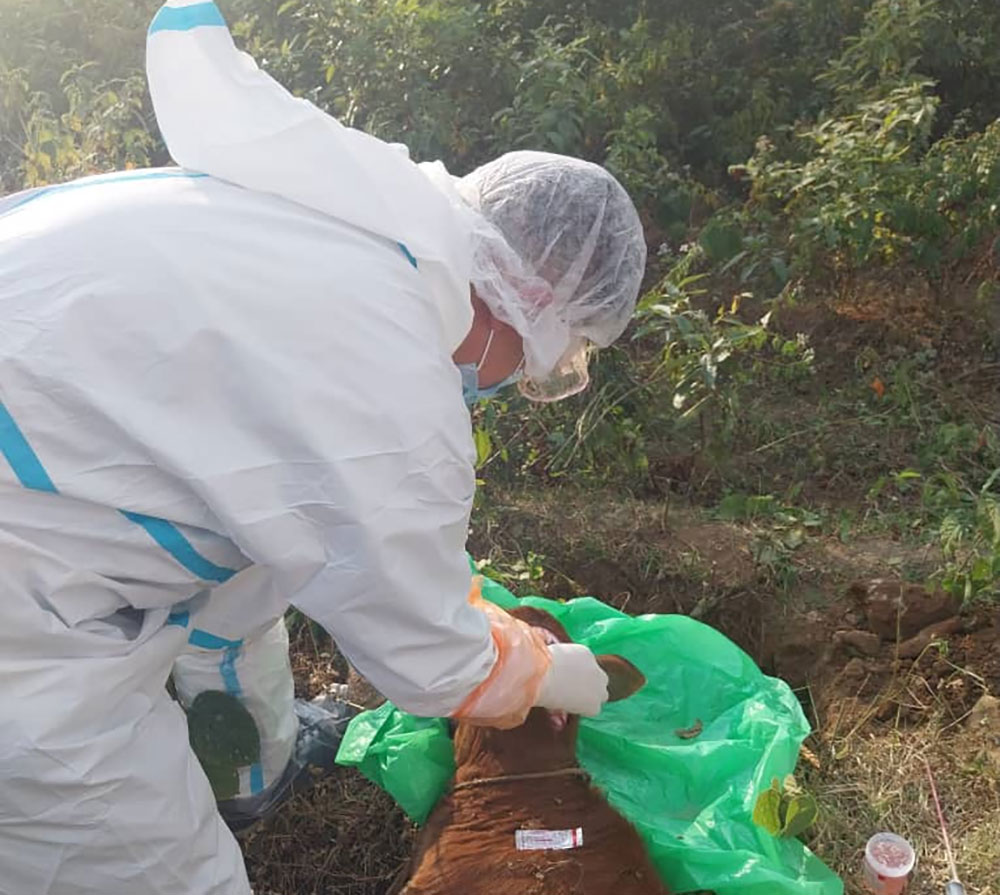YK Poudel
Bhutan is just three-days away from declaring it as a 100 percent dog sterilised country in 2023, yet Devithang, Dhamdum, Sang-Ngag-Chhoeling and AWP area in Samtse town reported its third rabies outbreak this week.
The case was reported in a cow and an unvaccinated stray dog.
With timely remedies, the situation in the throm and other three areas is under control thus far.
According to dzongkhag veterinary officials, the source of the outbreak could be due to un-notched adult female dogs that have entered Bhutan during the incubation period from India.
“The dog is said to have bitten four residents of Devithang and five other stray dogs in the area. As a primary measure, we have created awareness, advocacy and sensitised the community peoples regarding the outbreak and the need to stay cautious,” he said.
“The dogs and cats of the affected community susceptible to rabies infection are being vaccinated for immunity, and the carcass of the dead are well disposed of for safety,” he said.
Tshering Drukpa, a resident, said that they are concerned that the rabid dog may have transmitted the virus to other dogs in the vicinity.
“The rabid dog, displaying intense signs used to roam around, had bitten a 10-year-old child and three others last week before it was placed under observation. We expect dzongkhag veterinary officials to give proper attention to them,” she said.
For timely intervention, dzongkhag officials have directed the four individuals bitten by the rabid dog to undergo necessary vaccinations and treatment.
Since its first record recently, the dzongkhag livestock officials and health sector are implementing disease containment measures like post-exposure anti-rabies vaccination for affected household’s family members and creating public awareness and sensitisation.
Moreover, the dzongkhag livestock team will be closely monitoring the outbreak for the next 21 days to ensure that the community people are safe and the livestock are taken care of.


